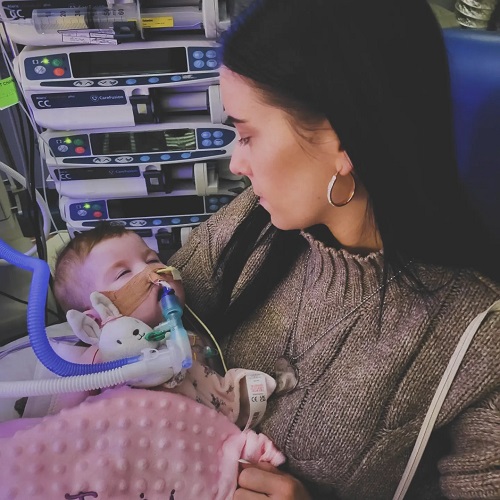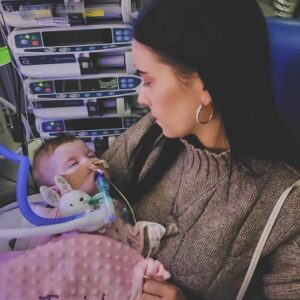Life support for little Indi Gregory interrupted
LONDON – Barring a miracle, the story of Indi Gregory, the 8-month-old baby affected by a serious genetic pathology and hospitalized in an English hospital, is headed for a tragic epilogue: on Saturday the procedures for the detachment of life support machinery began and the little girl was transferred from the Queen’s Medical Center in Nottingham to a hospice. Therefore, the last appeal of the parents – who, after having attempted to take her to Italy to have her treated at the Bambino Gesù hospital (for this purpose, the Italian government had granted citizenship to the child), had asked the English doctors to at least be able to take her home – was also rejected .
As is now sadly known, Indi is an eight-month-old English girl suffering from a rare form of mitochondrial pathology, considered by doctors to be incurable, to whom the High Court of London has recently denied the possibility of a transfer to Italy, after having received citizenship, to undergo treatment at the Bambino Gesù hospital which had made its availability, following the wish expressed by the parents.
After the refusal of the English judges to accept the appeal presented by her mother and father, the little girl – at the end of a back and forth between parents, doctors, courts and the English and Italian governments – was deprived of life support and transferred to a hospice for terminally ill patients.
“I hope my little warrior survives until Monday, I’m devastated and angry that the UK has sentenced a little girl to death” said her father Dean.
The detachment of little Indi Gregory’s vital machinery involves a gradual procedure, with reduced oxygen support to gradually accompany the little girl to death. The little girl could therefore remain alive for hours or a few more days, depending on how her body responds.
As Dean explained, the little girl was taken off the ventilator and put on an “oxygen mask that she will be able to keep on for a week”.
The man said he’s angry because “the United Kingdom sentenced a living child to death instead of accepting Italy’s offer to treat her at no cost to the British government”. The government led by Giorgia Meloni, in fact, in addition to granting Italian citizenship to the little girl in record time, had also guaranteed the coverage of all necessary expenses. But it wasn’t enough: the English Court rejected each request, arguing that the English courts are in the best position to assess the “best interests” of the child.
A detail, reported yesterday by the Italian press agency Adnkronos: Indi Gregory’s disease was discovered for the first time in the world in 2013 by Italian researchers from the ‘Aldo Moro’ University of Bari in collaboration with an Israeli-Palestinian team: the study was published in the ‘Journal of Medical Genetics’ and the Italian researchers are still continuing their studies on this particular disease.
The lawyer Simone Pillon, who assists the Gregory family, wrote on Facebook today: “After the extubation #IndiGregory stopped breathing. Then the little warrior recovered and she is fighting, assisted with love and courage by her mother and father. During the night she had stress and fatigue. The parents would like different solutions. We pray and work”.
Also Pope Francis is close to the Gregory family. In a statement released yesterday, the Director of the Holy See Press Office, Matteo Bruni, said: ”Pope Francis embraces the family of little Indi Gregory, her father, and her mother; prays for them and for her, and turns his thoughts to all the children around the world who, at this very hour, are living in pain or whose lives are at risk because of illness or war”.
In the pic above, Indi with her mother in a photo published by lawyer Simone Pillon on his Facebook page




